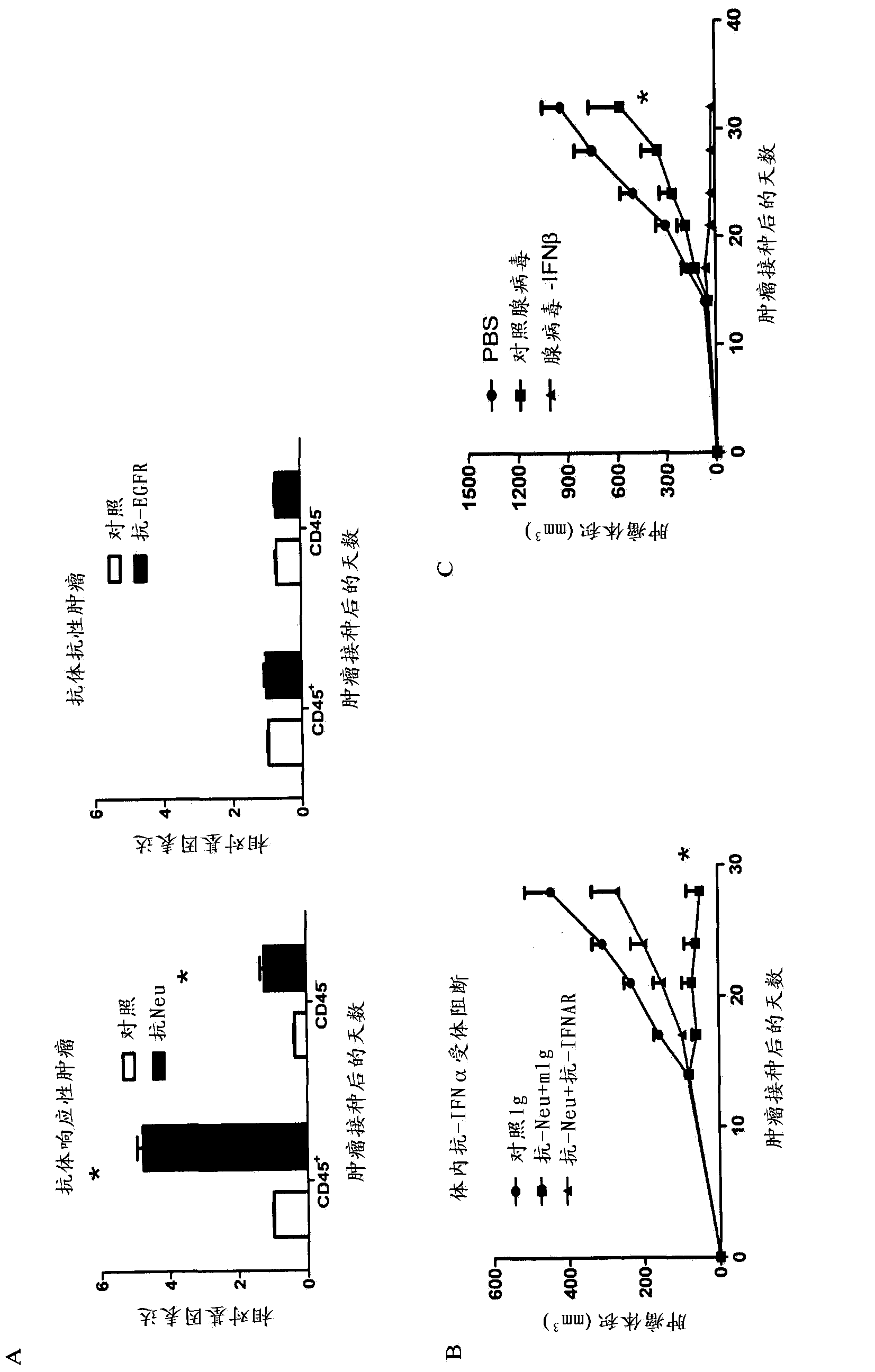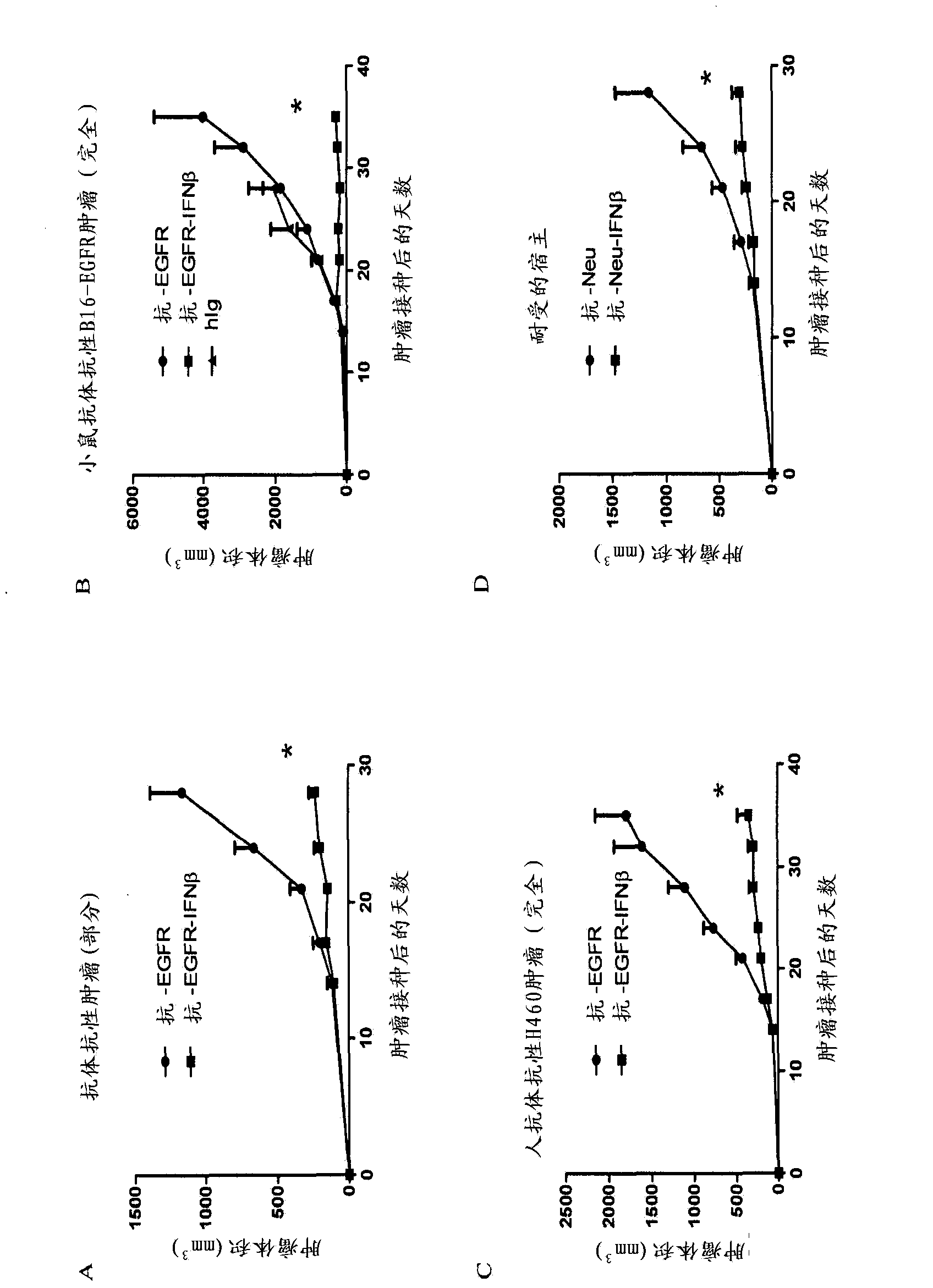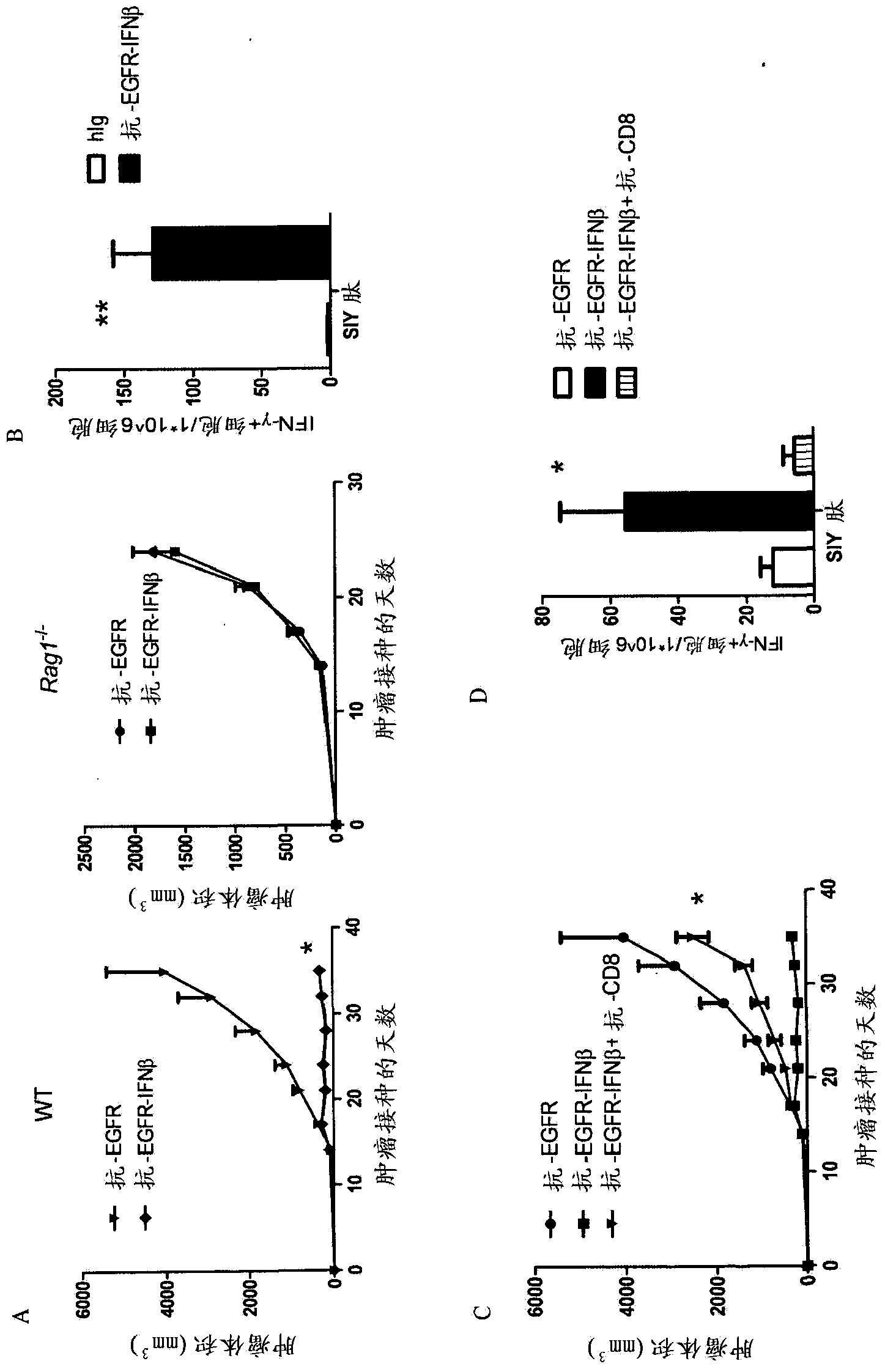Use of interferon in treatment of tumor, and related product and method
An interferon, tumor technology, applied in the field of tumor treatment
- Summary
- Abstract
- Description
- Claims
- Application Information
AI Technical Summary
Problems solved by technology
Method used
Image
Examples
Embodiment 1
[0115] Type I interferons are required for effective tumor responses to antibody therapy in vivo
[0116] Type I interferons have been shown to serve as potentially critical danger signals in eliciting antitumor T cell responses in spontaneous tumor rejection and in various antitumor therapies. The current inventors hypothesized that anti-oncogenic receptor antibodies induce in tumor tissue Type I interferon production, which bridges innate and acquired immunity. To test whether tumor sensitivity to anti-oncogenic receptor antibodies correlates with post-treatment levels of type I interferon in the model described here, the inventors first generated two different tumor cell lines, antibody-responsive cells lines and antibody-resistant cell lines. TUBO mammary tumor cells were derived from Her2 / neu Tg mice, where Neu is the main signal for cell growth, and TUBO cells were used as anti-neu antibody responsive tumor cell lines. The EGFR-transfected B16 melanoma cell line, in wh...
Embodiment 2
[0118] Targeted delivery of interferon beta enhances antibody-mediated therapeutic efficacy
[0119] The data in Example 1 suggest that targeting type I interferons to tumors has potential immunotherapeutic effects, particularly for overcoming tumor resistance to antibody therapy. In order to further verify this conclusion and further improve the therapeutic effect, the current inventors prepared an anti-EGFR-interferon beta (Ab-IFN beta) fusion protein to deliver interferon beta directly to tumor tissues expressing EGFR in a targeted manner ( Figure 9 A). The present inventors first checked whether the anti-tumor function of anti-EGFR and interferon beta in this fusion protein remained intact. The inventors found that the fusion protein can bind EGFR + cell( Figure 9 B) And it can activate the type I interferon receptor signaling pathway (data not shown), so it can be seen that the anti-tumor functions of anti-EGFR and interferon β in the fusion protein are well maintain...
Embodiment 3
[0123] Therapeutic efficacy of an anti-EGFR-interferon beta fusion protein depends on acquired immunity
[0124] Type I interferons have multiple potential effects on tumor growth, including inhibition of proliferation, inhibition of angiogenesis, activation of innate immune cells, bridging innate and adaptive immunity, and direct activation of adaptive immune responses. To assess the relative contribution of acquired immunity among other anti-EGFR-IFNβ antitumor effects, B16-EGFR-bearing B6 Rag1 KO mice were treated with anti-EGFR-IFNβ. In contrast to the therapeutic effect observed in WT mice, similar doses of anti-EGFR-IFNβ failed to suppress tumors in these immunocompromised Rag1 KO mice ( image 3 A). Thus, these data support the conclusion that anti-EGFR-interferon beta mediated therapeutic effects largely require acquired immunity.
[0125] CD8 + T lymphocytes are the major cell population involved in controlling the growth of many tumors. To determine whether they ...
PUM
 Login to View More
Login to View More Abstract
Description
Claims
Application Information
 Login to View More
Login to View More - R&D
- Intellectual Property
- Life Sciences
- Materials
- Tech Scout
- Unparalleled Data Quality
- Higher Quality Content
- 60% Fewer Hallucinations
Browse by: Latest US Patents, China's latest patents, Technical Efficacy Thesaurus, Application Domain, Technology Topic, Popular Technical Reports.
© 2025 PatSnap. All rights reserved.Legal|Privacy policy|Modern Slavery Act Transparency Statement|Sitemap|About US| Contact US: help@patsnap.com



